- Clone
- M1/70; 1A8; HK1.4;
- Regulatory Status
- RUO
- Other Names
- Myeloid derived suppressor cells flow kit, CD11b/Ly6G/Ly6C
- Isotype
- Rat IgG2a, κ/Rat IgG2b, κ/Rat IgG2c, κ
- Ave. Rating
- Submit a Review
- Product Citations
- publications
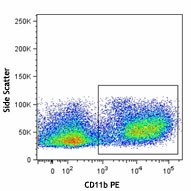
-

C57BL/6 mouse splenocytes were stained with mouse MDSC Flow Cocktail 2 (CD11b PE/Ly-6G FITC/Ly-6C APC). -

| Cat # | Size | Price | Quantity Check Availability | Save | ||
|---|---|---|---|---|---|---|
| 147003 | 25 tests | £238 | ||||
This mouse MDSC Flow Cocktail 2 is composed of CD11b, Ly-6C, and Ly-6G antibodies. MDSCs are a heterogenous population of cells that can affect T cell function. Two different subsets of MDSC exist: CD11b+Ly-6G+Ly-6Clow (granulocytic MDSC) and CD11b+Ly-6G-Ly-6Chi (monocytic MDSC). These cells have been identified in a variety of pathological conditions including cancer and autoimmune disease.
CD11b: CD11b is a 170 kD glycoprotein also known as αM integrin, Mac-1 α subunit, Mol, CR3, and Ly-40. CD11b is a member of the integrin family, primarily expressed on granulocytes, monocytes/macrophages, dendritic cells, NK cells, and subsets of T and B cells. CD11b non-covalently associates with CD18 (β2 integrin) to form Mac-1. Mac-1 plays an important role in cell-cell interaction by binding its ligands ICAM-1 (CD54), ICAM-2 (CD102), ICAM-4 (CD242), iC3b, and fibrinogen.
Ly-6G: Lymphocyte antigen 6 complex, locus G (Ly-6G), a 21-25 kD GPI-anchored protein, is expressed on the majority of myeloid cells in bone marrow and peripheral granulocytes.
Ly-6C: Most hematopoietic cells express one or more members of Ly-6 family. The expression of Ly-6 varies with development stage and activation. Ly-6C is a 14-17 kD GPI-linked surface protein expressed on mouse monocyte/macrophage cells, endothelial cells, neutrophils, and some T cell subsets. Ly-6C is reported to be an indicator of memory CD8+ T cells.
Product Details
- Verified Reactivity
- Mouse
- Host Species
- Rat
- Formulation
- Phosphate-buffered solution, pH 7.2, containing 0.09% sodium azide and 0.2% (w/v) BSA (origin USA).
- Preparation
- This reagent is a multicolor cocktail of PE conjugated CD11b (clone M1/70), FITC conjugated Ly-6G (clone 1A8) and APC conjugated Ly-6C (clone HK1.4) at optimal concentration for three-color flow cytometric analysis.
- Concentration
- Lot-specific (to obtain lot-specific concentration and expiration, please enter the lot number in our Certificate of Analysis online tool.)
- Storage & Handling
- The antibody solution should be stored undiluted between 2°C and 8°C, and protected from prolonged exposure to light. Do not freeze.
- Application
-
FC - Quality tested
- Recommended Usage
-
Each lot of these antibodies is quality control tested by immunofluorescent staining with flow cytometric analysis. For flow cytometric staining, the suggested use of this reagent is 20 µl per million cells or 20 µl per 100 µl of whole blood. It is recommended that the reagent be titrated for optimal performance for each application.
- Application Notes
-
Materials provided:
1. Mouse MDSC Flow Cocktail (containing CD11b PE/Ly-6G FITC/Ly-6C APC), 25 tests
2. Mouse MDSC Isotype Control Cocktail (containing rat IgG2b PE/rat IgG2a FITC/rat IgG2c APC), 25 tests
Materials not provided:
Cell Staining Buffer (Cat. No. 420201)
Single color compensation controls - Product Citations
-
- RRID
-
AB_3097688 (BioLegend Cat. No. 147003)
Antigen Details
- Biology Area
- Immunology
- Antigen References
-
1. Daley JM, et al. 2008. J. Leukocyte Biol. 83:1.
2. Fleming TJ, et al. 1993. J. Immunol. 151:2399.
3. Dietlin TA, et al. 2007. J. Leukocyte Biol. 81:1205.
4. Barclay A, et al. 1997. The Leukocyte Antigen FactsBook Academic Press.
5. Jutila MA, et al. 1988. Eur. J. Immunol. 18:1819.
6. Cerwenka A, et al. 1998. J. Immunol. 161:97.
7. Springer TA. 1994. Cell. 76:301.
8. Coxon A, et al. 1996. Immunity 5:653.
9. Brummer E, et al. 1984. J. Leukocyte Biol. 36:505.
10. Stoppacciaro A, et al. 1993. J. Exp. Med. 178:151. - Gene ID
- 16409 View all products for this Gene ID 17067 View all products for this Gene ID 3684 View all products for this Gene ID 546644 View all products for this Gene ID
Related FAQs
Other Formats
View All Reagents Request Custom Conjugation| Description | Clone | Applications |
|---|---|---|
| Mouse MDSC Flow Cocktail 2 with Isotype Ctrl | M1/70; 1A8; HK1.4 | FC |
Customers Also Purchased
Compare Data Across All Formats
This data display is provided for general comparisons between formats.
Your actual data may vary due to variations in samples, target cells, instruments and their settings, staining conditions, and other factors.
If you need assistance with selecting the best format contact our expert technical support team.
-
Mouse MDSC Flow Cocktail 2 with Isotype Ctrl
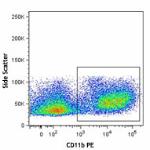
C57BL/6 mouse splenocytes were stained with mouse MDSC Flow ... 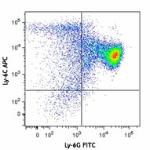

 Login / Register
Login / Register 









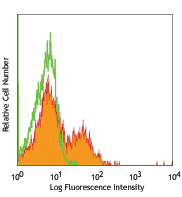
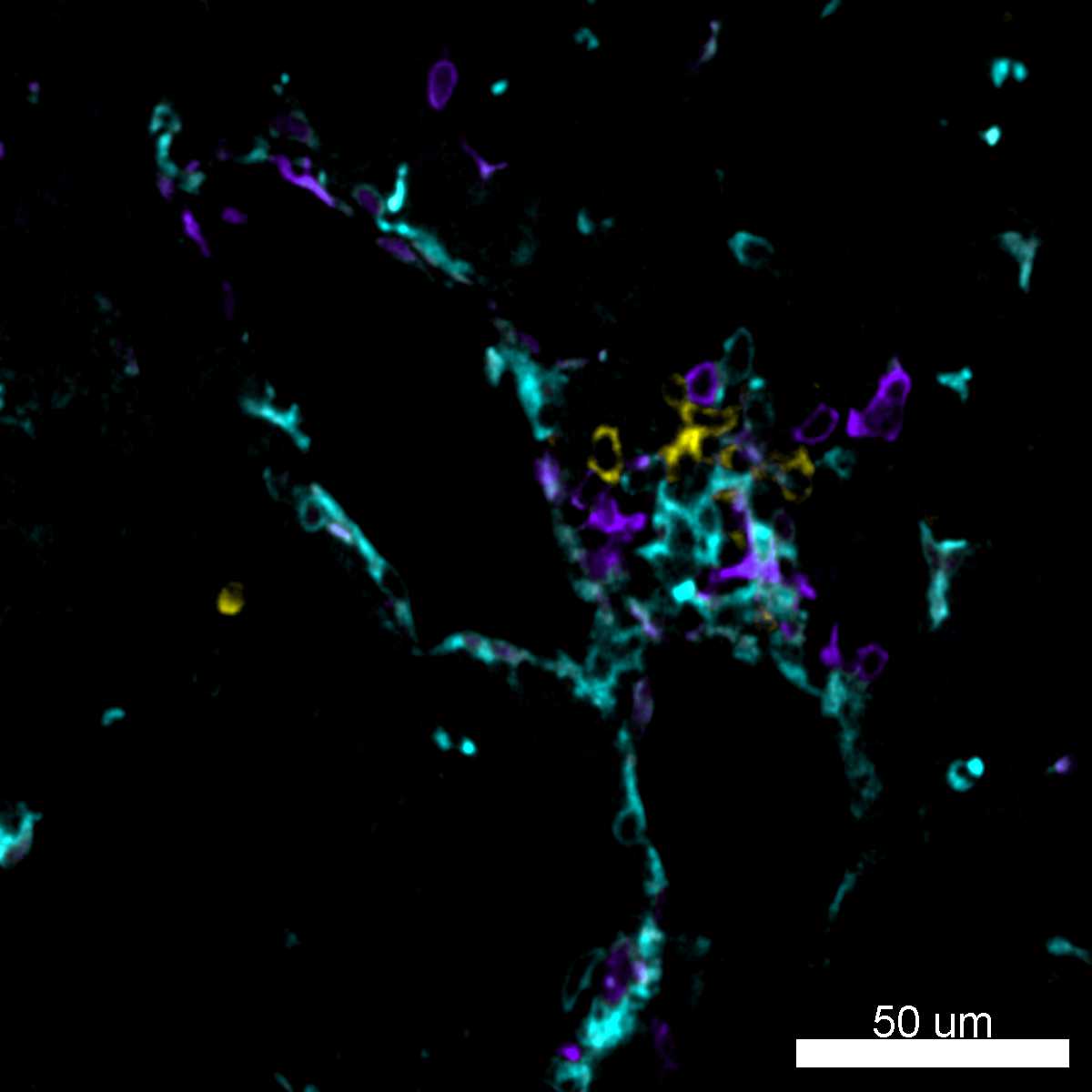
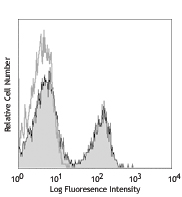
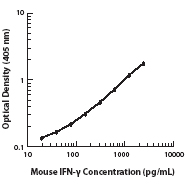



Follow Us